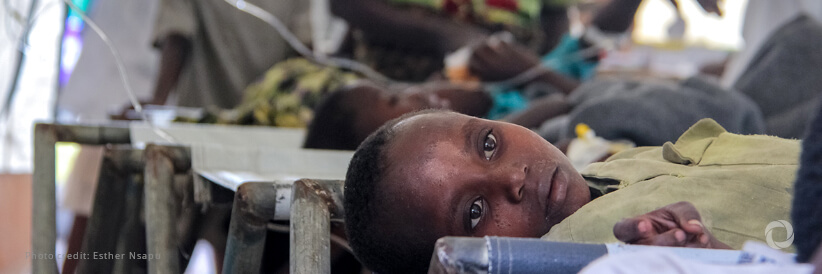Since May 05, 2025, the DRC’s Ministry of Public Health and Social Welfare has declared Cholera epidemics in 6 provinces: Haut Katanga, Tanganyika, North and South Kivu, Tshopo, and Kongo Central.
18,385 cases have been reported since January, with 364 deaths, representing a case-fatality rate of 2%, well above the WHO‘s acceptable threshold. The disease affects both children and adults, with a rapid course that can lead to death if not treated in time. The situation is all the more critical as torrential rains and flooding have worsened access to drinking water and sanitation.
And yet, at a time when needs are increasing, most humanitarian funding is being drastically reduced or even cut off. This drastic reduction in resources compromises prevention, rapid response, and case management efforts. This lack of resources limits the ability of humanitarian actors to respond effectively. This epidemic is taking place against a backdrop of drastically reduced humanitarian funding. Given this emergency, World Vision’s office in the DRC is launching an urgent appeal to donors to step up interventions to prevent and treat cholera.
“Every hour is precious. Entire families and thousands of children are at risk. We need rapid support to deploy vital actions: access to drinking water, hygiene kits, community awareness, and medical care. We call on all financial partners to act now to save lives,” says Aline Napon, Country Director, World Vision DRC.
World Vision reaffirms its commitment and presence on the ground, but cannot face the scale of the crisis alone. Urgent mobilization is essential to avoid an avoidable tragedy.
The organization is calling:
- Donors to reactivate or increase funding for the WASH, health, and emergency response sectors.
- Humanitarian partners to strengthen coordination and advocacy for a collective response.
- Congolese institutions are to facilitate access to affected areas and support the efforts of NGOs.
“Humanitarian action cannot wait. Every day without a response, lives are needlessly lost. There is still time to save lives. But for that to be achieved, the necessary resources must be made available,” Aline Napon, National Director, World Vision DRC.

